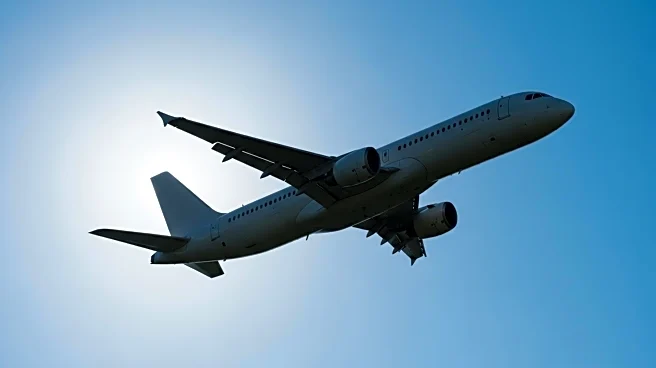What is the story about?
What's Happening?
Spirit Airlines has filed for bankruptcy protection for the second time in less than a year, citing adverse market conditions and low demand for domestic leisure travel. The airline plans to continue operations during the restructuring process, allowing passengers to book trips and use their tickets and loyalty points. Employees and contractors will continue to receive payment. The company is facing pressure from larger airlines that have introduced their own low-cost services. Spirit is attempting to tap into a growing market for upscale travel with a new tiered pricing model that offers more perks at higher price points. Despite emerging from a previous Chapter 11 reorganization in March, Spirit has struggled with rising operational costs and mounting debt, leading to a negative free cash flow of $1 billion at the end of the second quarter.
Why It's Important?
The bankruptcy filing highlights the challenges faced by budget airlines in the current market, where larger carriers are expanding their low-cost offerings. Spirit's financial difficulties underscore the impact of fluctuating demand for leisure travel and the competitive pressures in the airline industry. The restructuring aims to position Spirit for future growth, but the company's substantial debt and operational uncertainties pose significant hurdles. The situation affects various stakeholders, including employees, passengers, and investors, as Spirit navigates its financial recovery. The airline's attempt to attract more upscale travelers with tiered pricing could redefine its market strategy and influence industry trends.
What's Next?
Spirit Airlines plans to implement cost-cutting measures, including furloughing pilots and downgrading captains to first officers, based on expected flight volumes in 2026. The company is considering selling aircraft and real estate to raise cash. These steps are part of Spirit's strategy to stabilize its financial position and address operational challenges. The airline's future will depend on its ability to adapt to market conditions and compete with larger carriers. Stakeholders, including union leaders and investors, will closely monitor Spirit's restructuring efforts and potential changes in its business model.
Beyond the Headlines
Spirit Airlines' bankruptcy filing raises questions about the sustainability of ultra-low-cost carriers in a competitive market. The airline's focus on upscale travel options reflects a shift in consumer preferences and the need for differentiation. The restructuring process may lead to changes in labor relations and operational strategies, impacting the broader airline industry. Spirit's financial struggles highlight the importance of adaptability and innovation in navigating economic uncertainties and evolving market dynamics.















